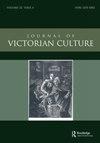‘Meeting Together in an Equal and Friendly Manner’: The Workplace Literary Culture of Lancashire Mutual Improvement Societies
IF 0.5
3区 历史学
Q2 HISTORY
引用次数: 0
Abstract
This article traces the progress of mutual improvement in the coalfields around Aspull beginning in the 1870s and culminating with the opening of the Garswood Hall Collieries Institute in 1893. It analyses this process in relation to Patrick Joyce’s account of the development of industrial paternalism in Lancashire. It shows how mutual improvement societies were formed primarily on the initiative of individual workers, with some assistance from local religious groups, rather than being employer-led. It also demonstrates how the Aspull Society acted as the starting point for a network of similar societies across the local area. By tracing the careers of a number of individuals closely associated with mutual improvement societies, this article shows that such societies did enable occupational and social mobility, thereby demonstrating the virtues of self-help to workers and employers alike. Next, the article traces the factors which led to the opening of the Garswood Hall Collieries Institute and argues that the formation of the Institute exemplifies the delicate social choreography on which the successful practice of paternalism in an industrial context depended. It demonstrates that local autonomous activity on the part of individual miners was combined with the use of local newspapers and delegations to employers to create the conditions for an appropriate paternalist response in the form of the ‘gift’ of the Institute to the community. The Institute thus became a demonstration of the employers’ fitness to exercise local leadership and a symbol of education as a means of achieving class harmony within the existing social hierarchy. It concludes by observing that in the case of the Garswood Hall Collieries Institute the vision of class harmony which it offered its members nonetheless remained vulnerable to the economic realities of the relationship between capital and labour.“以平等和友好的方式聚会”:兰开夏郡互助改善协会的工作场所文学文化
这篇文章追溯了从19世纪70年代开始,到1893年加斯伍德霍尔煤矿研究所成立,阿斯拉周围煤田相互改善的进展。本文结合帕特里克·乔伊斯对兰开夏郡工业家长制发展的描述,分析了这一过程。它表明,相互改善的社会是如何主要在个人工人的倡议下,在当地宗教团体的一些帮助下形成的,而不是由雇主主导的。它还展示了阿斯拉协会是如何作为当地类似社会网络的起点的。通过追踪一些与共同改善社会密切相关的个人的职业生涯,这篇文章表明,这种社会确实使职业和社会流动成为可能,从而向工人和雇主展示了自助的优点。接下来,文章追溯了导致加斯伍德霍尔煤矿学院开放的因素,并认为该学院的形成体现了工业背景下家长制的成功实践所依赖的微妙的社会编排。它表明,个别矿工的地方自治活动同利用地方报纸和派代表团到雇主那里去创造条件,以便以研究所给社区的“礼物”的形式作出适当的家长式反应。因此,该学院成为雇主适合行使地方领导能力的一个证明,并成为教育作为在现有社会等级内实现阶级和谐的一种手段的象征。文章最后指出,在加斯伍德霍尔煤矿研究所的案例中,它为其成员提供的阶级和谐愿景仍然容易受到资本与劳动关系的经济现实的影响。
本文章由计算机程序翻译,如有差异,请以英文原文为准。
求助全文
约1分钟内获得全文
求助全文

 求助内容:
求助内容: 应助结果提醒方式:
应助结果提醒方式:


